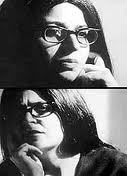Sunday I told an old friend my family's multi-generational saga of rape and incest. Most of it, anyway. Into her silence at the end I asked, "Aren't all families like that?"
"No," she replied. "No, they're not." But I think our science fiction family might be. At least a little.
The incident that my assertion above will bring immediately to mind for you depends on when you're reading this. At the time I'm writing it, that's most likely the sexual harassment a congoer underwent at Readercon. It wasn't the first incident of its kind. It won't be the last.
I met the Readercon offender when he served as MC for the Carl Brandon Society Awards ceremony at Arisia in 2011. I'm not shocked that he's someone I know. That's how this sort of thing works.
The encounters that affront me are more often racial or cultural in nature than sexual. And the people that hurt me, that stun me with their ignorance and blithe insensitivity, their privileged cluelessness, are my friends, my role models, my elders. My tribe.
Here are two names.
Gene Wolfe was inducted into the Chicago Literary Hall of Fame this past March. I was asked to contribute an essay to the event's program book. I'm very proud of "Cookies and Kindness," which describes how sweet Wolfe was to me when we first met. He was a GOH at 1983's World Fantasy Convention, and I was a total n00b whom he rescued from utter dejection. But I left out of the essay our last meeting, a Locus Awards Weekend panel featuring him and Greg Bear speaking at length about the nonexistence of racial profiling. That panel I came within inches of walking out of, because both these men whom I love and respect were so wrong I couldn't bear to hear what they chose to say on a topic of which they lacked any personal experience. Honestly, if I'd been just a little closer to the aisle....And why, you may ask, didn't I stand up and speak out if I couldn't sit calmly and listen, or manage somehow to slip away?
Really, I really do love these men. It's so hard to tell anyone you admire they're queefing like a douchebag. I guess I'm doing it now. Hi, Greg. Hi, Gene.
I understand why the Readercon ConCom made the error that they made. They were wrong; I'm so glad they've admitted that. Let me repeat: it was a mistake not to apply the standing sexual harassment policy to Ren
é Walling just because he was who he was. And I get how that mistake happened.
My mother had three brothers. They're all dead. She has one sister. I know she felt it her sacred duty to keep the remaining family together when, at the age of 11, she lost her own mother to rheumatic heart disease. I understand why she felt she had to forgive her sister's rapist, their last surviving brother. Who grew up to rape his oldest daughter before she left grade school. My mother wasn't about to abandon him, though. And I understand why
she doesn't understand that the now-adult raped daughter won't speak with my mother or return her calls. I understand that lack of comprehension, and I understand that lack of forgiveness.
The hurts I've endured from racism and inappropriate cultural appropriation and the like are nonphysical, so perhaps they're not as horrific as those endured by members of our genre family suffering sexual predation. I'm not the target in the cases I'm talking about, either. There are a whole host of dissimilarities. But here's what the two classes of offense share: they're committed by the opposite of strangers.
Would it help if I named more names? The next one could be yours.











